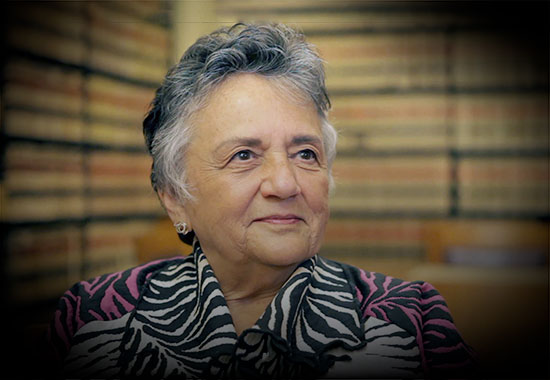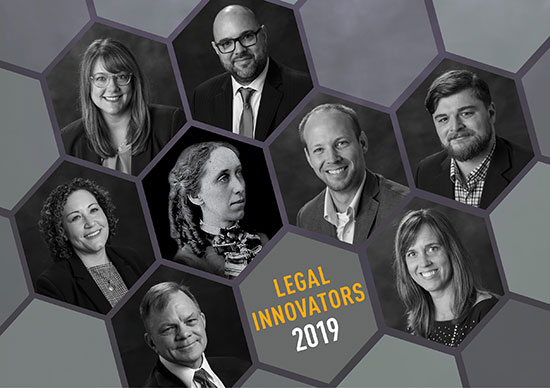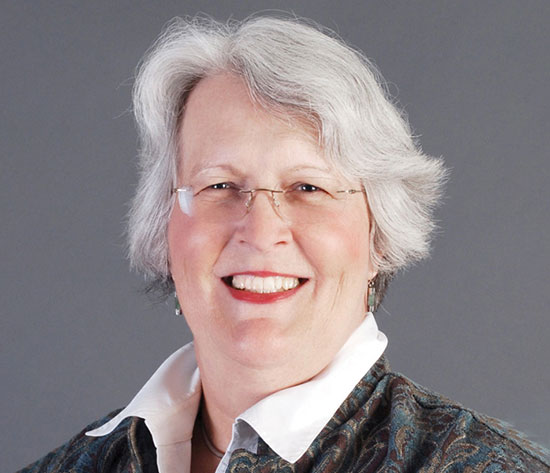
Dec. 18, 2019 – On the verge of 2020, year-in-review articles usually highlight the major stories of 2019, most of them in the realm of politics, controversy, or tragedy.
This article highlights the major legal developments in Wisconsin over the past year, capturing the major themes and discussions relating to the legal profession and the practice of law.
These articles are mostly written by Wisconsin lawyers and judges, who contribute countless hours to help fill the pages of Wisconsin Lawyer™ (WL), the State Bar’s flagship publication, and InsideTrack™ (IT), the State Bar’s bimonthly digital publication.
It also includes blog posts from State Bar sections that really picked up steam in 2019 with more than 100 blog posts and will keep it rolling in 2020.
We reflect on 2019 by highlighting some of the State Bar’s top content in these publications, in no particular order, based on high online reader engagement. It also includes articles selected by editors at the State Bar.
Wisconsin Lawyer
 1) Shirley Abrahamson: A Legacy of Judicial Service in Wisconsin (WL, May)
1) Shirley Abrahamson: A Legacy of Judicial Service in Wisconsin (WL, May)
After 43 years as a justice on the Wisconsin Supreme Court – almost half as chief justice – Shirley Abrahamson retired in July, ending her fourth, 10-year term on the state’s highest court and capping a career as the longest-serving justice in state history.
2) The Business of Marijuana (WL, March)
Paloma Kennedy discusses how lawyers should prepare for the possible legalization of marijuana in Wisconsin and for potential clients considering a marijuana-based business, including advising about potential sources of liability and the scope in which they may operate their business legally.
3) Medicaid Birth Cost Recovery: New Rules Affect Unmarried Parents (WL, March)
ABC for Health attorney Richard Lavigne explains that lawyers who work with low-income clients can make a meaningful difference by being aware of opportunities to challenge or reduce Medicaid birth cost judgments.
4) More Than Just a Seat at the Table (WL, March)
Milwaukee attorney Jasmyne Baynard says the legal profession will be truly diverse and inclusive when women are at the table as participants, not just observers.
 5) What’s Hot, What’s Not: National Practice Trends 2019 (WL, February)
5) What’s Hot, What’s Not: National Practice Trends 2019 (WL, February)
National legal industry experts highlight legal practice trends and comment on how Wisconsin lawyers could seize on opportunities, self-assess, and determine where to put their time and energy to build momentum in 2019. Watch for the 2020 update in February.
6) A Profession on Edge (WL, July)
Wood Foster Jr. offers a range of information about rapid changes in the legal profession affecting every practicing lawyer which, taken as a whole, help explain how quickly the legal profession is evolving and what legal professionals collectively might think about as they move into the future.
7) Who Cares What I Wear to Court? (WL, July)
Some people care what women lawyers wear to court, but it's up to the individual to decide how to deal with "dress codes" and appearance expectations, says New Richmond lawyer Deanne Koll.
8) Pick Your Winner: 2019 Smartphone Roundup (WL, January)
In 2019, the most well-known smartphone models and some lesser-known rivals competed for consumers' attention, according to Aly Lynch. With the Lynch's comparison of features, lawyers were equipped to identify top smartphone choices before heading to the sales floor or online to make a final selection. Watch for the 2020 lineup in January.
 9) Juvenile Lifers: Reforming Extreme Sentences (WL, January)
9) Juvenile Lifers: Reforming Extreme Sentences (WL, January)
Wisconsin courts and lawmakers could immediately lessen the disparate impact and high costs of the state's incarceration laws by addressing prison sentences for certain inmates who committed crimes when they were under age 18, Eileen Hirsch and Martha Askins explain.
10) Threshold Issues in State Court Civil Litigation (WL, January)
In this article, Douglas Hoffer helps civil litigation lawyers understand how threshold requirements can end an opposing party’s lawsuit.
11) Top 18 Legal Technology Developments of 2018 (WL, February)
Legal technology guru and lawyer Bob Ambrogi discusses legal technology developments of the prior rear (2018). Watch for his review of 2019 in February.
12) Driverless Cars on Wisconsin Roadways (WL, April)
The much-heralded evolution to autonomous vehicles will affect not only our commutes but also the types of work we engage in when we reach our offices, Art Harrington and Stevin George explain.
 Joe Forward, Saint Louis Univ. School of Law 2010, is a legal writer for the State Bar of Wisconsin, Madison. He can be reached by email or by phone at (608) 250-6161.
Joe Forward, Saint Louis Univ. School of Law 2010, is a legal writer for the State Bar of Wisconsin, Madison. He can be reached by email or by phone at (608) 250-6161.
13) The Art and Communication: Neuroscience and the Law (WL, September)
Advances in neuroscientific research have improved understanding of how humans communicate, including within the framework of the law. Here are key points lawyers need to know about cognitive communication to improve interactions with clients and others, from Joseph Wszalek, the inaugural member of the U.W.’s JD/PhD dual-degree program in neuroscience and the law.
14) Out of Luck: Need a Rural Family Law Attorney? (WL, September)
Lori Kornblum and Prof. Daniel Pollack explain that many Wisconsin residents struggle to find legal representation when going to court because they live in parts of the state underserved by lawyers, especially those who practice in family law. Is telelawyering a possible solution?
 15) Meet This Year’s Champions of Innovation (WL, November)
15) Meet This Year’s Champions of Innovation (WL, November)
Meet these risk takers – forward thinkers all – who advance the legal profession with perseverance, creative thinking, and big ideas. Among them, Lifetime Innovator Award recipient Lavinia Goodell, the first woman admitted to practice law in Wisconsin, in 1879.
Inside Track
16) Inbox (2 New): New Law Allows Service of Discovery, Other Papers by Email (IT, November)
Under a new statute, attorneys can voluntarily agree to accept email service of discovery requests, responses, and other papers required to be served on counsel.
17) Employment Law: Using CCAP to Search Arrest and Conviction Records (IT, October)
Background checks are tricky when dealing with prospective and current employees. Employment lawyers should be prepared to advise employers about arrest and conviction record discrimination, Jessica Kramer writes.
18) Legal Malpractice Claims: How Long Do I Have to Worry? (Litigation Section Blog, January)
In 2018, the statute of limitation for tort claims of legal malpractice was shortened from six to three years. However, this change may not reduce the potential exposure period for legal mistakes, says Amy Risseeuw.
19) Fifth Annual Wisconsin Law Blogs: 76 Blogs Find their Legal Niche (IT, June)
The fifth annual list of Wisconsin law blogs shows lawyers continue to blog on developments in niche areas, providing a primary source of legal information.
 20) Phyllis Frye: The Grandmother of the Transgender Rights Movement (IT, July)
20) Phyllis Frye: The Grandmother of the Transgender Rights Movement (IT, July)
Phyllis Frye, an attorney and judge in Texas, became an open transgender woman in the 1970s, and has fought to promote and protect transgender rights ever since. She was a featured speaker at the State Bar of Wisconsin’s Health, Labor, and Employment Law Institute.
21) Wisconsin Supreme Court: 2018-19 Stats and Summaries (IT, August)
The Wisconsin Supreme Court issued 54 authored decisions in the 2018-19 term. This article provides statistics and analysis, as well as insights from civil and criminal lawyers, with the holdings and votes in all 54 decisions.
22) Law Firm Culture: How Does Yours Fare in the Millennial Market (IT, September)
Millennials account for 40 percent of the U.S. workforce. Law firms can attract talented millennial lawyers, generally between ages 25 and 38, by focusing on law firm culture.
23) Wills for Heroes: One of Many Ways Lawyers Give Back to their Communities (IT, October)
Section Blogs
24) Chapter 12 Bankruptcy Relief Now Available to More Farmers (Agriculture Law and Rural Practice Blog, August).
David Krekeler discusses the Family Farmer Relief Act more than doubles the debt limit for family farmers seeking Chapter 12 bankruptcy relief. J. David Krekeler discusses the impact the Act may have, and why action is needed to assist family farmers.
 25) Appellate Standards of Review: ‘Neigh’ to Kentucky Derby Appeal (Appellate Practice Section Blog, September)
25) Appellate Standards of Review: ‘Neigh’ to Kentucky Derby Appeal (Appellate Practice Section Blog, September)
In this six-part series, Jacques Condon takes a look at the concept and reality of standards of review in appeals. In this first part, he sets up the situation, based on the dethroning of 2019 Kentucky Derby first-place finisher, Maximum Security. “As the actual rule – and standard of review – will be front and center,” he writes.
26) LLCs and Standing to Sue: Wisconsin Supreme Court Weighs In (Business Law Section Blog, December)
In a recent ruling, the Wisconsin Supreme Court weighed in on the rights and obligations of members in a limited liability company. Willie Boucher discusses the ruling and its potential impact for LLCs in Wisconsin.
27) Trauma-informed Care and the Role of Guardian ad Litem (Children and the Law Section Blog, July)
Knowledge of a child's underlying trauma is the first step toward making the most appropriate recommendation regarding the best interest of the child. Kelsey Stefka discusses trauma-informed care and how it can be used by guardians ad litem to better understand their young clients.
28) Independent Contractor or Employee? Getting it Right When Classifying Workers (Construction & Public Contract Law Section Blog, May)
Improperly classifying workers exposes an employer to significant fines and penalties. Andrea Murdock discusses various tests employers should use in determining whether to treat workers as independent contractors or employees.
29) An Effective Mediation Tool Listening (Dispute Resolution Section Blog, March)
Listening closely and carefully is one of the most effective tools of the family court mediator. Nancy Mills discusses this subtle mediator skill that helps the mediator bring adversarial parents to an agreement that places the needs of the child first.
 30) Federal Ozone Litigation: What’s at Stake for Wisconsin? (Environmental Law Section Blog, June)
30) Federal Ozone Litigation: What’s at Stake for Wisconsin? (Environmental Law Section Blog, June)
As we head into another summer ozone season, EPA's final nonattainment designations for Wisconsin counties remain in effect, and remain in dispute. Katie Nekola discusses the status of Clean Wisconsin v. United States Environmental Protection Agency and what it means for Wisconsin.
31) Crime Victim Right: Marsy’s Law Comes to Wisconsin (Family Law Section Blog, February)
Advocates for Marsy’s Law – equal rights for crime victims as defendants – have introduced resolutions recently in the Wisconsin Legislature. Donna Ginzl talks about Marsy’s Law for All and what’s happening in Wisconsin.
32) Family Care: Supporting the Independence of Wisconsin’s Aging Residents (Health Law Section Blog, June)
Family Care is a Medicaid long-term care program that allows eligible Wisconsin to reside in their own homes while receiving high-quality support and care management. Julianne Cox discusses the program, enrollment, and its benefits and services.
33) How Huawei CFO’s Criminal Prosecution Could Signal a New Approach to U.S. Sanctions Enforcement (International Practice Section Blog, April)
The Huawei CFO’s prosecution signals a new enforcement strategy under the Trump administration to strictly enforce U.S. sanctions regulations. Ngosong Fonkem provides practical solutions for corporate officers seeking to avoid violating U.S. sanctions laws.
34) Employer Obligations When Using Third Parties to Conduct Background Checks (Labor & Employment Law Section Blog, March)
When employers engage third parties to conduct background checks on job applicants, they must be certain to follow their obligations under the Fair Credit Reporting Act and similar state laws or they may open themselves up to liability. Meg Vergeront discusses employer obligations when conducting a background check through third-party investigators.
 35) Written Interrogatories as a Discovery Tool: Learning to Count to 25 (Litigation Section Blog, March)
35) Written Interrogatories as a Discovery Tool: Learning to Count to 25 (Litigation Section Blog, March)
Wisconsin now has a limit on the number of written interrogatories. Ralph Tease and David S. Blinka share their thoughts on the impact of this new limitation, and what it may mean in civil litigation.
36) Who is Your Neighbor? Buyers Should Beware When Purchasing Rural Property (Real Property, Probate and Trust Law Blog, March)
Purchasers of property adjacent to large-scale agricultural operations often find themselves in conflict with their neighbors. Under Wisconsin law, the property owner’s recourse for perceived nuisances is extremely limited, says Steve Frassetto, who discusses the livestock facility siting law and its impact on local governments and property owners.
